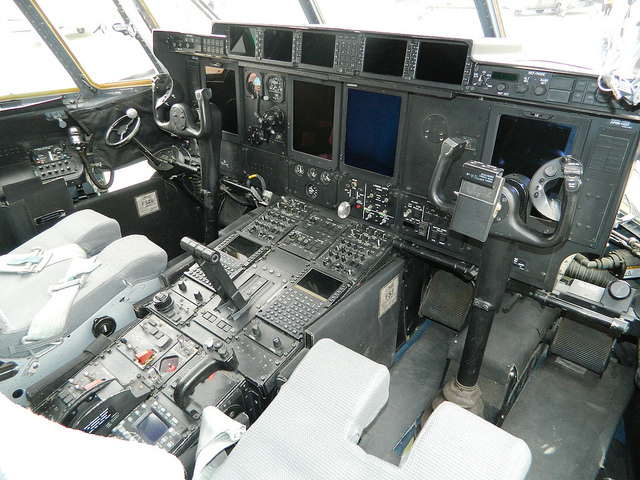 Last year, on October 2, 2015, a cargo plane crashed in Afghanistan, killing 14 people. The dead included five military contractors. Recently, the United States Air Force determined that the crash was caused by the misuse of a night-vision goggles case. Essentially, the pilot used a night-vision goggles case to brace the plane’s yoke in a manner that made loading easier. As stated in the USAF Aircraft Accident Investigation report:
Last year, on October 2, 2015, a cargo plane crashed in Afghanistan, killing 14 people. The dead included five military contractors. Recently, the United States Air Force determined that the crash was caused by the misuse of a night-vision goggles case. Essentially, the pilot used a night-vision goggles case to brace the plane’s yoke in a manner that made loading easier. As stated in the USAF Aircraft Accident Investigation report:
The [mishap pilot] placed a hard-shell [night-vision goggles] NVG case forward of the yoke during the [Engine Running Onload/Offload (ERO) operations]. This placement of the case braced the yoke in a position that raised the elevator to facilitate off-loading high-profile (tall) cargo. The blocking of the flight controls during loading operations is a non-standard procedure; as such, there is no regulatory guidance to prohibit the act, or to address the proper placement and removal of the object blocking the controls. The ERO checklist did not require the pilots to perform a flight control check prior to departure. It was therefore incumbent on [mishap pilot] and [mishap copilot] to remember to remove the hard-shell NVG case without a checklist item as backup.
During the course of the investigation, the Accident Investigation Board (AIB) conducted takeoff simulations in a flight simulator to recreate flight conditions experienced during the mishap sortie (MS). Placement of a similar hard-shell NVG case forward of the yoke closely replicated the mishap sequence of events. Failure to assess the risk of blocking the flight controls during an ERO was causal to this accident.
Back in October, Taliban militants claimed that they shot the plane down. Now, however, it looks like this plane crashed because of a freak accident.
This begs the question: Does the revelation that the aircraft crashed because of a freak accident instead of a terrorist shooting affect coverage under the Defense Base Act or reimbursement under the War Hazards Compensation Act?
The answer to both questions is, “No.” The Defense Base Act covers everything from slip-and-falls to suicide bombings. A plane crash over Bagram where multiple defense contractors are killed is a pretty clear DBA claim.
As for the War Hazards Compensation Act, reimbursement is available to a carrier no matter whether a terrorist event occurred. Any injurious mishaps that occur during the “operation” of an aircraft qualify as a “war-risk hazard.” It doesn’t matter whether the plane crashed because of a night-vision goggles case or a rocket-propelled grenade. The carrier will still be reimbursed for the Defense Base Act benefits it paid as a result of the crash.
Attribution: Photo courtesy of Flickr user rahulras1993.
